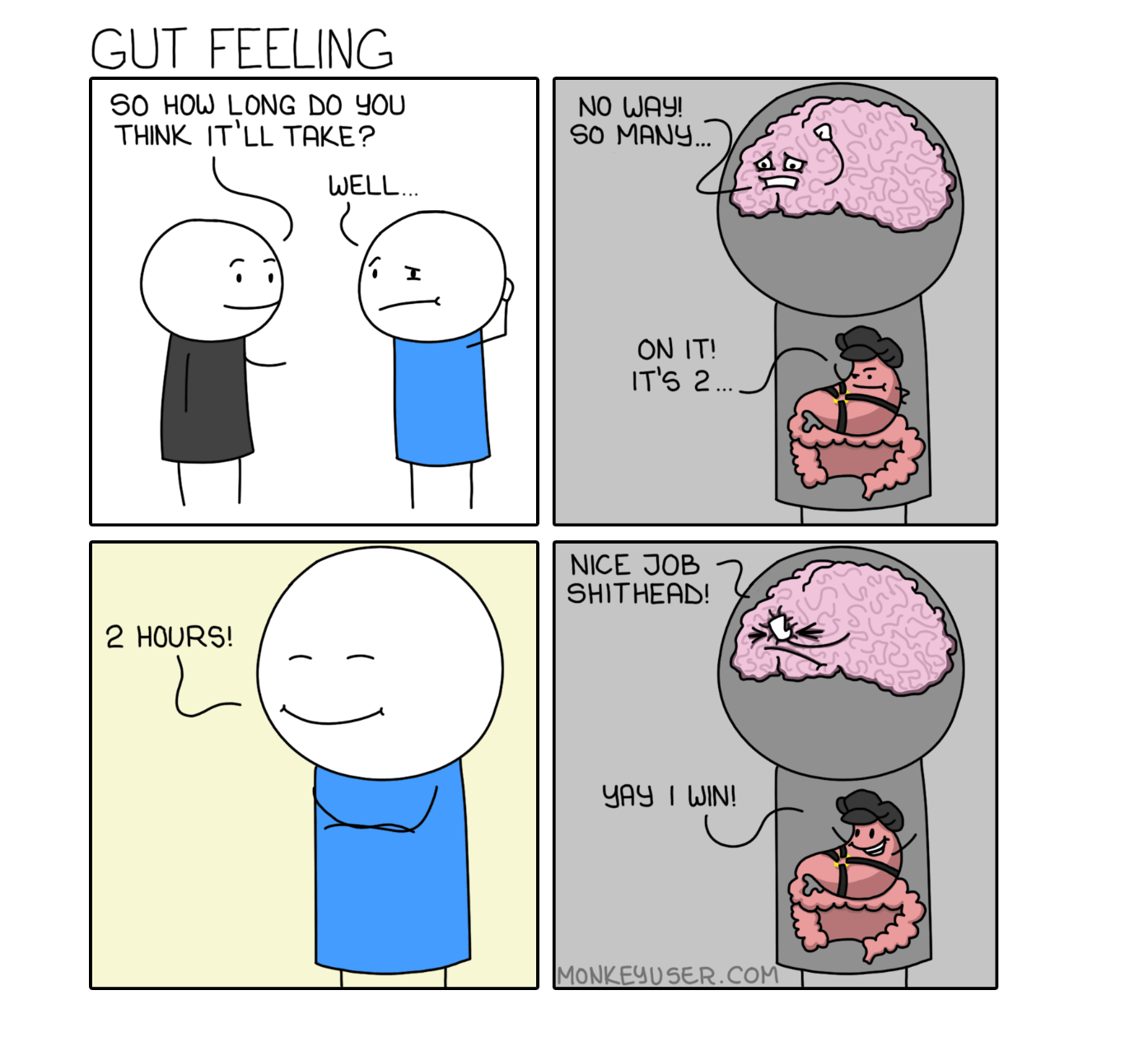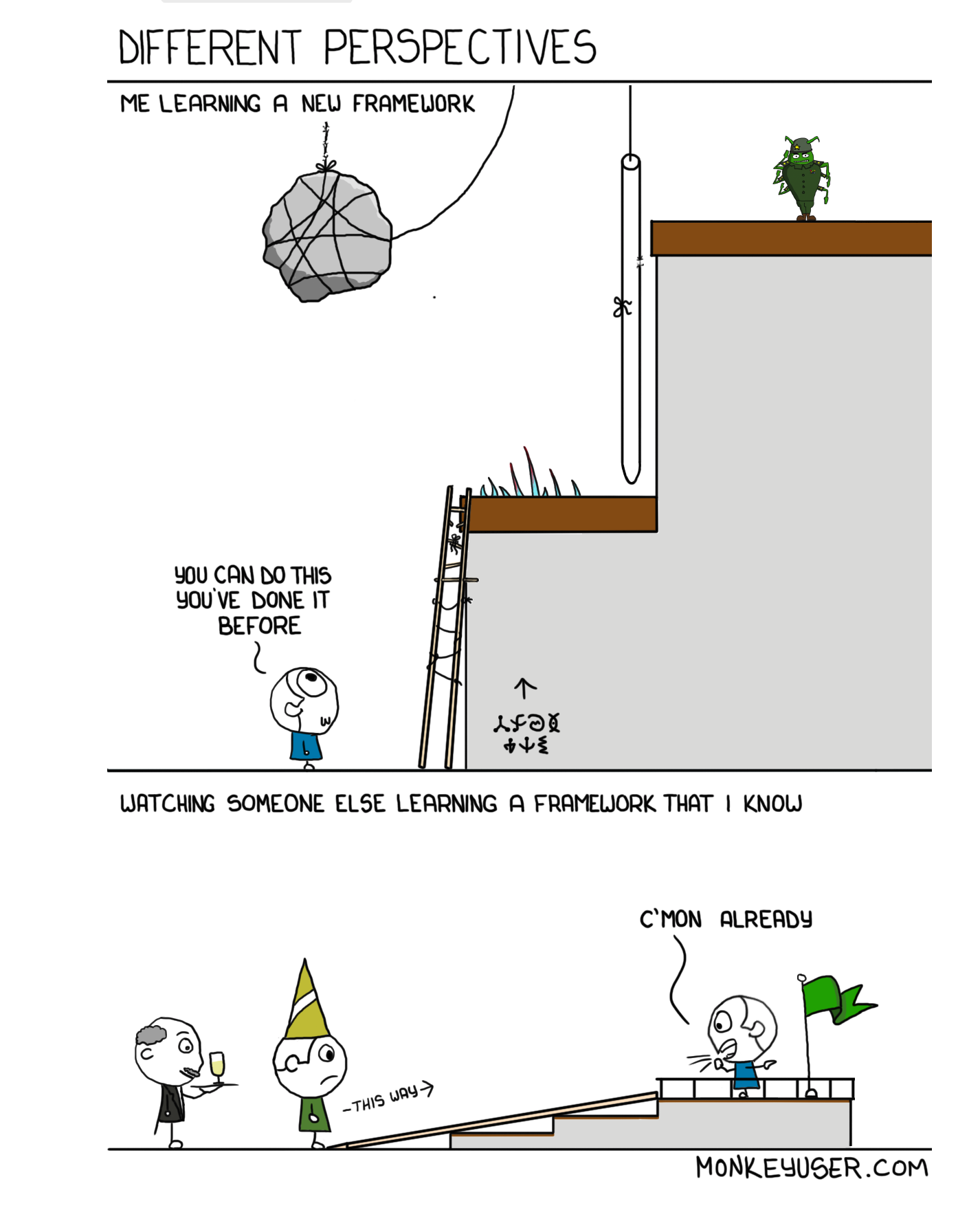Next month, I will have officially completed my first year of being a software engineer. Like most engineers who are starting off their careers, I continually battle feelings of imposter syndrome – specifically those feelings of inferiority and inadequacy when surrounded by many talented and experienced engineers. These feelings often tend to arise in times that are so routine that many experienced engineers tend to forget how they used to feel when they first began their careers. As I bring in my first year as an engineer, I’ve noticed that these feelings are naturally starting to subside and the impact of these situations seem to lessen. I attribute this mostly due to the experience I’ve gained and the support from those around me. Below I’ve highlighted some common situations that many of us beginning engineers face during our first year of working and how I’ve been able to face the insecurities that have arisen.
So, do you think this story is going to make it in the sprint?
The sprint has been cut and each story has been tasked and estimated. I pick up a story that was estimated to take roughly two days to complete. I have a good sense of what I need to do and I am fairly confident that I could get it done in time. But it is now nearing the end of the sprint and I am drowning in bugs and pull request (PR) comments. “So do you think this story is going to make it in the sprint?” This is a legitimate question. I know that it is not meant to instill fear nor was it meant to put pressure on me – DataGrail is not like that. In fact, a simple “no, I don’t think so. I keep running into unexpected bugs” would suffice; it may just simply lead to someone offering their help. However, as an engineer who is trying to prove her worth, I can very easily have this question turn on me. Will saying no, make me appear incapable?
After a year of going through this routine, I can definitively say these things: we get estimates wrong all the time, scope creep is a thing, and requested changes in PR comments are usually negotiable. Listening to my peers and seeing how they’ve addressed this situation has helped me quell my feelings of appearing incapable. I still think that they’re amazing even if their story can’t make it into the sprint so that probably means that they don’t think I’m that bad right?

So we want to set up SAML for …
If you’re wondering, “wtf is SAML,” you are not alone. It stands for Security Assertion Markup Language and it is a Single Sign On standard for authentication and authorization amongst third party systems and an identity provider (Okta, OneLogin, etc). I know this only because the stars aligned and I had the opportunity to work with it; otherwise, I am unsure if I ever would have encountered it. Throughout our weekly sprint ritual of grooming and tasking, I subconsciously avoided the task and kept quiet because I had no idea what SAML was; the fear of exposing my inexperience came over me and I didn’t want to appear dumb. It didn’t occur to me that I wasn’t alone.
Anytime an acronym, term, or technology I’ve never heard of gets mentioned and opinions begin to fly, it will undoubtedly make me question my role and go “[expletive], am I supposed to know what this is?” Even though I was told plenty of times “no,” I had this perception that everyone around me was omniscient and that saying “no” was them just being nice to me. But then I remembered my past life as a teacher and how not knowing the answer to a question never destroyed my confidence. My students acknowledged the fact that I was human and didn’t know everything, so why would my colleagues expect I that should. They don’t expect me to know everything and I don’t expect them to either.
This is easy, it shouldn’t take too long.
We all say it – including me. It is not intended to be condescending; but I think that this phrase may be one of the most difficult to hear.
“Easy” often implies that a task takes minimal thought is and that execution is timely. So what happens when that isn’t the case? There have been times where I have been left wondering if I was inadequate because it took me the whole day to successfully connect to a third party system’s API. I’ve literally stared at code for hours trying to figure out how to use a small library (this one if you’re curious). I was thrilled when I finally figured it out but embarrassed about how long it took. Then I heard these beautiful words, “oh yeah, it’s kind of tricky but it makes sense after you’ve done it” and it all made sense.
As I’ve been putting more tasks under my belt and gained more experience, I have found that I can be the offender. Things that used to seem hard were now less hard and I’ve realized that this was due to experience. So now, when I hear someone say this, I just remind myself that what they really mean is “this is easy, once you’ve done it a couple of times before.”

So how did I manage to quell these feelings of inferiority and inadequacy? It was largely due to a supportive community and a healthy dose of self awareness. Let’s talk about community first. Having a group of people that you can fearlessly ask questions without judgement is amazing. Having a group of people who can acknowledge when things are hard is also just as amazing. I have both so I guess I am lucky. I have coworkers who value kindness, put teamwork above their own egos, and are supportive of our individual desires to grow. I have mentors (Anne, Ana, and Lance) who have so kindly agreed to be my unofficial therapists and the recipients of all the questions that run through my mind – and I have A LOT of questions. I have vented my feelings of inadequacy to Anne and she graciously deconstructed my fears and proposed that I look at them from a different perspective. She said that instead of feeling scared, I should feel proud of the fact that my peers believed that I was capable of tackling a complicated task. “At least they aren’t just making you do bug tickets all the time.” I guess I’m pretty happy about that.
As for self awareness, well, it’s quite evil but has its benefits. Without it, I probably would not be subject to the feelings of imposter syndrome and that would be great. But without it, I probably wouldn’t be where I am today; that would make me sad. Self awareness has made me acknowledge my weaknesses. It has given me the motivation to challenge myself by taking on more complex stories. It has pushed me to learn things – like googling semaphores right before bed because your coworker would not stop talking about them. Most of all it has made me realize that I know nothing and that is okay.
